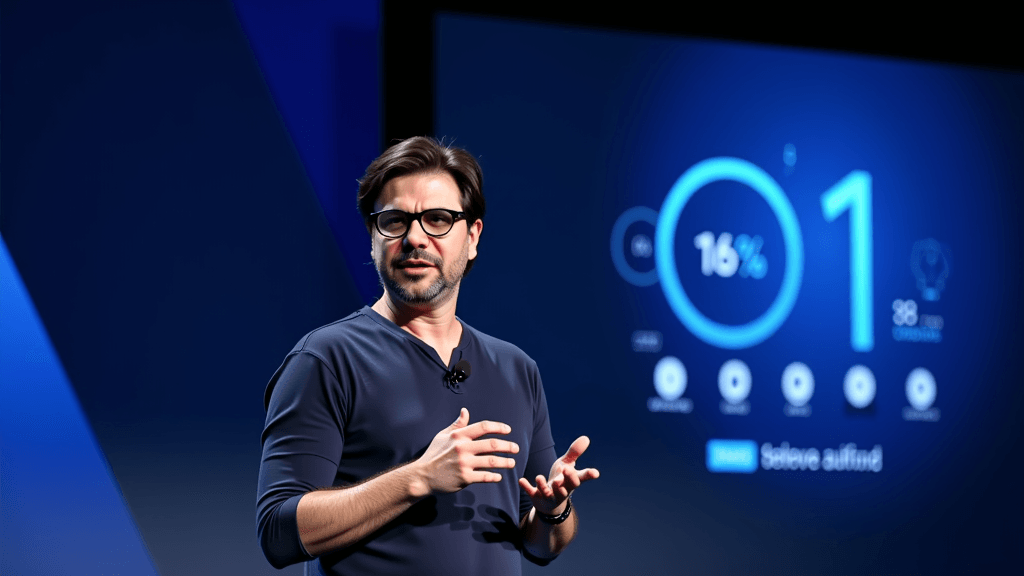Brazil Invests R$ 3.4 Billion in AI While 56% of Teachers Already Use Technology - Why This Moment Defines Our Digital Maturity
October 18, 2025 | by Matos AI

In the last 24 hours, the Brazilian artificial intelligence scene has revealed something fascinating: we are no longer in the experimentation phase, but in the mature institutionalization of the technology. While FINEP has already approved R$ 3.4 billion in AI projects under the Brazilian Artificial Intelligence Plan, 56% of Brazilian 6th-9th grade teachers already use AI in teaching activities, exceeding the OECD average.
This is no coincidence. It's a reflection of a transition that I've been following closely in my consultancies with companies and governments: we've moved on from the question “should we use AI?” to “how can we use AI responsibly and strategically?”
The Maturity Paradox: Structural Investment vs. Practical Challenges
The most significant news in recent hours comes from FINEP, which has already allocated R$ 3.4 billion of the R$ 23 billion expected by 2028 for AI projects. This investment ranges from infrastructure to technological development, public service improvements and business innovation. It's a clear sign that Brazil is taking its technological sovereignty seriously.
Join my WhatsApp groups! Daily updates with the most relevant news in the AI world and a vibrant community!
- AI for Business: focused on business and strategy.
- AI Builders: with a more technical and hands-on approach.
But here's the interesting thing: at the same time as we have this structural billionaire investment, we see practical reports that show the real challenges of implementation. Journalist Laura Intrieri, from Folha de S.Paulo, tried creating applications with AI for a month and concluded that “almost all of them were useless”.
This apparent contradiction reveals something important: we are maturing our understanding of where AI really adds value. It's not about creating solutions because we can, it's about solving real problems efficiently.
The Silent Revolution in Brazilian Education
What struck me most was the educational debate. A report from The Intercept Brasil brought a touching account of a university lecturer discovering that her students use generative AI without the lecturers being aware. One student even outsourced his project completely to ChatGPT.
But here's the point: instead of panic or resistance, we see a mature and structured debate. Researchers from UFMG say the use of AI in teaching is a “path of no return”, while discussing both pedagogical possibilities and ethical and environmental risks.
As someone who has spent years working in technology education, I see this as a sign of institutional maturity. We're not running away from reality or uncritically embracing technology. We're doing what we should have been doing all along: debating, regulating and implementing responsibly.
The Numbers Reveal Our Leadership
The data is impressive. According to the international survey Talis, 56% of Brazilian 6th-9th grade teachers use AI in teaching activities, This percentage is higher than the OECD average. The main applications involve:
- Creating personalized lesson plans
- Adapting teaching materials
- More efficient evaluation processes
- Support for special needs
This positions Brazil as a global pioneer in the educational use of AI, something we rarely see in international technology rankings.
Private Sectors Embrace Transformation
While the public sector invests heavily in infrastructure, we see interesting movements in the market. O Reddit has launched its Reddit Answers tool in Portuguese, The team, trained exclusively with discussions from the Brazilian community. With 95% of growth in weekly active users between 2024 and 2025, Reddit sees Brazil as a strategic market.
The difference here is interesting: instead of generic synthetic content, the tool offers answers based on real conversations, with links to original posts. It's transparency and authenticity - two values I consider fundamental to the responsible use of AI.
In pharmaceutical retail, the Panvel Group automates the entire purchase process via WhatsApp with AI. The assistant Sofia carries out around 3,000 daily interactions and is responsible for 68% of the customer service calls, keeping human professionals for cases that require a medical prescription.
The Starbucks Model: AI as Support, Not Replacement
One case that caught my eye was that of Starbucks, which developed the “green dot” system” - a virtual assistant that helps baristas solve operational problems in real time. CEO Brian Niccol was clear: he ruled out replacing employees with robots, emphasizing the focus on authentic human experience.
This approach resonates with my experience consulting companies: the most effective AI is one that enhances human capabilities, not replaces them. It's about making people more productive and creative, not eliminating them.
Smart Regulation: The Case of Telecommunications
THE Anatel asked IA.lab for a detailed study to map AI solutions in the telecommunications sector. The aim is to provide subsidies for intelligent regulation that balances innovation with the protection of users' rights.
This represents something I've been advocating for years: regulation is not a brake, it's a rail. When done well, it creates legal certainty that accelerates investment and responsible adoption.
The survey will assess technical, ethical, regulatory aspects, operational and economic impacts, safety and compliance. This is exactly the kind of systematic approach we need for strategic sectors.
The Human Side of the Revolution: Relationships with AI
One of the most intriguing pieces of news came from the US, but with global implications: 28% of American adults have had some kind of romantic relationship with AI, while more than half maintain friendship or virtual confidences.
This raises profound questions about how AI is changing not only our work, but our very social nature. In my consultancies, I always emphasize that the implementation of AI must consider the psychological and social impact, not just operational efficiency.
The study identifies generational differences: older adults don't consider interactions with AI to be betrayal, while young people see it as a breach of trust. These are nuances that we need to understand as technology becomes more sophisticated and humanized.
Lessons for Leaders and Organizations
What do the last 24 hours teach us about the state of AI in Brazil? Several important lessons:
1. Structural Investment Is Fundamental
The R$ 3.4 billion already approved by FINEP shows that the country is taking its technological sovereignty seriously. This creates the basis for private companies and public institutions to have the right infrastructure to innovate.
2. Education at the forefront
The fact that 56% of Brazilian teachers already use AI - exceeding the OECD average - indicates that our ability to adapt may be greater than we realize. This is crucial for training the next generation of professionals.
3. Transparency as a differentiator
Tools such as Reddit Answers, which show the sources of the answers, represent a more reliable route than generic chatbots. Transparency will increasingly be a competitive factor.
4. AI as an Enabler, Not a Substitute
The cases of Starbucks and Panvel show that the most successful implementations use AI to amplify human capabilities, keeping the human element where it really matters.
5. Proactive Regulation
Anatel's initiative to study the sector before regulating shows regulatory maturity. It's better to understand in depth before creating rules that could inhibit innovation or leave dangerous loopholes.
The Moment of Truth
We are living through a unique moment in the history of Brazilian AI. It's no longer about “if” we're going to adopt the technology, but about “how” we're going to do it in an intelligent, inclusive and sustainable way.
The government's billion-dollar investments, combined with rapid educational adoption and practical business use cases, create a scenario where Brazil can position itself as a global benchmark in responsible AI implementation.
But this requires leaders, educators, entrepreneurs and policymakers to work together. Technology is just a tool - what we do with it defines our future.
As someone who has been following Brazil's technological evolution for decades, I see encouraging signs. We have infrastructure being built, educators adapting quickly, companies implementing with discretion and regulators acting proactively.
The next step is to ensure that this maturity translates into real benefits for the whole of Brazilian society - not just for those who have privileged access to technology.
In my mentoring and consulting programs, I have helped leaders and organizations navigate exactly this transition: how to move from hype to strategic and responsible implementation. Because at the end of the day, the AI that really matters is the one that solves real problems and improves real lives.
✨Did you like it? You can sign up to receive 10K Digital's newsletters in your email, curated by me, with the best content about AI and business.
➡️ Join the 10K Community here
RELATED POSTS
View all



